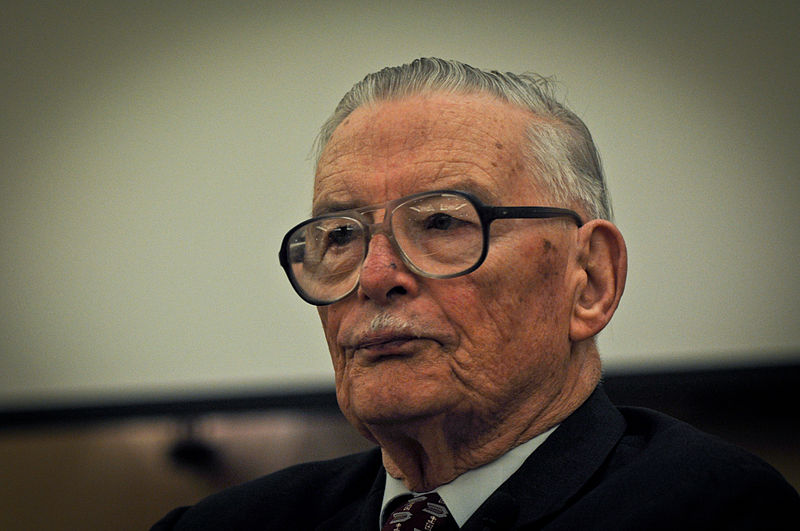The advantage of the “Internet Age” is that we get information from all over the world almost immediately. Sometimes it‘s good, sometimes the news is not so positive. That’s exactly what happened last week. On Wednesday, 9th January 2013, the media informed about the issue affecting not only fans of the science called economics – a great thinker, James M. Buchanan, has died at the age of 93.

Plik James Buchanan by Atlas network.jpg znajduje się w Wikimedia Commons – repozytorium wolnych zasobów.
Buchanan, who received his doctorate in economics (1948) from the prestigious University of Chicago, is considered to be the father of an economic discipline called Public Choice. This area of economic science deals with the state and public policy as factors whose existence and interactions very strongly influence economic behavior of us, individuals trying to maximize our utility in the condition of scarce economic resources. However, the terms “state” as “one entity” are not accurate – it was Buchanan, affected by both, the famous Swedish economist Knut Wicksell (the Stockholm School of Economics) and by Frank Knight (co-founder of the Chicago school of economics), who applied microeconomic approaches to various analyzes of the public sector and who promoted the idea that no “state” actually exists; the state and its administration are made up of thousands, hundreds of thousands, or millions of officials, who are interested mainly (or even only) in their own wants and needs.
So, Buchanan argued that any collective action can be understood as an act of individuals, i.e. it is necessary to study all group activities and requirements in “public interest” by tools of methodological individualism – trying to understand what the particular interests of individual members of these groups are. We can safely say that no such thing as “public interest” in fact exists – a rational individual “only” makes an effort to maximize their own utility in given conditions (constraints) in every situation.
During his work at several American universities, and later in his Center for Study of Public Choice in Virginia, Buchanan formulated a series of stimulating ideas about public choice theory and contractual and constitutional bases for the theory of economic and political decision-making. His findings have basically determined a direction of modern political economy and his work has become “a classic” during his life. That is why it forms a base for studies of economics at the best universities around the world. In 1986, James M. Buchanan received the Sveriges Riksbank Prize in Economic Sciences in Memory of Alfred Nobel (known as “The Nobel Prize for Economics”), although he often argued that the decision of the the Royal Swedish Academy is a little bit strange: My thoughts are so simple and ordinary so I still cannot understand all this interest in my person, he said. This also explains why he was, and still is, so popular among his colleagues and students.
A mention of great people who passed away but left their valuable academic heritage for their followers, is, of course, a cliché. Sometimes, however, we cannot avoid using it. The economist named James M. Buchanan is precisely the case.


















No comments
Be the first one to leave a comment.